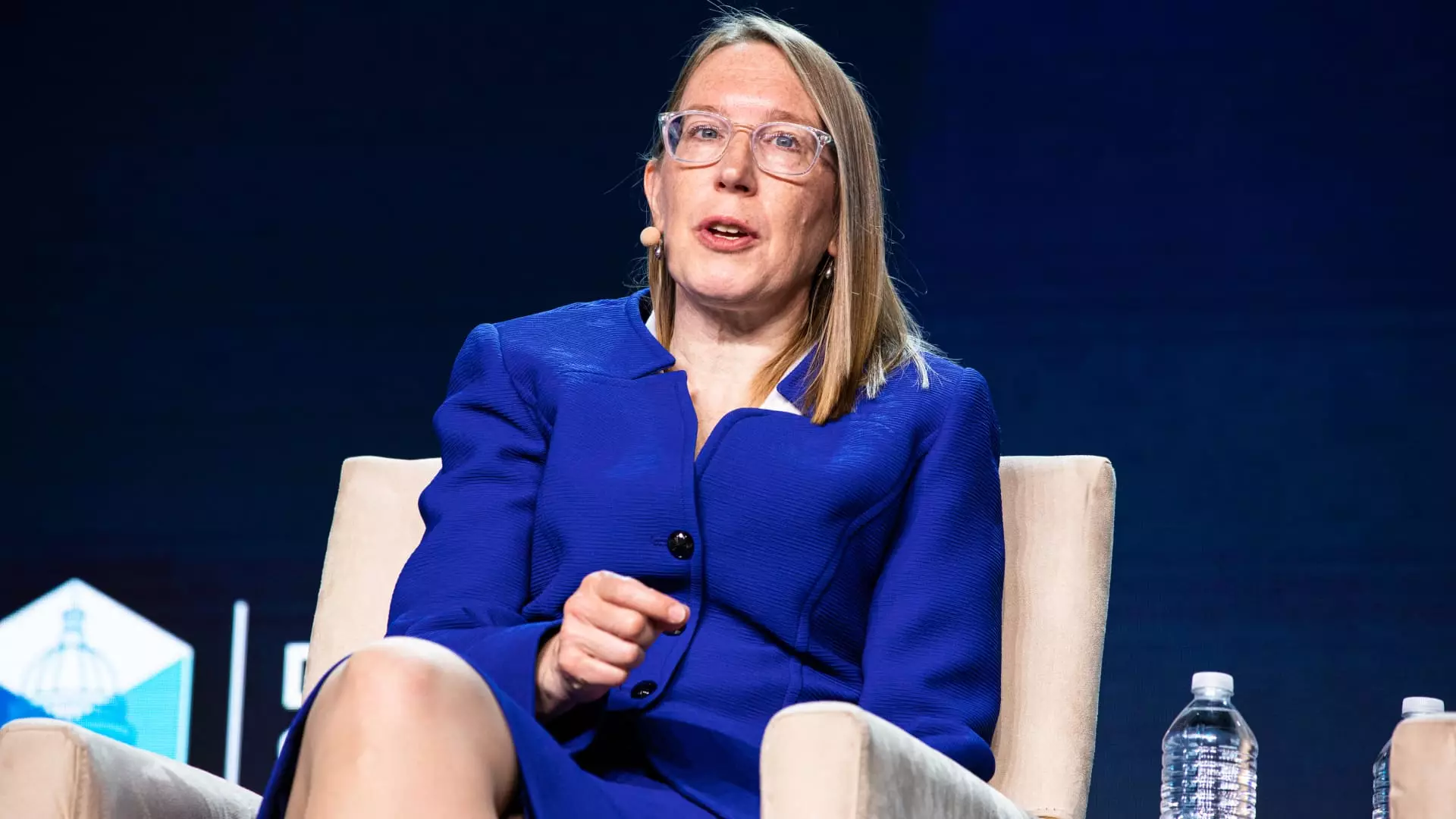In a surprising turn of events, the U.S. Securities and Exchange Commission (SEC) has effectively distanced itself from the regulation of meme coins. This change in stance, articulated by SEC Commissioner Hester Peirce, indicates a significant shift in how the agency views cryptocurrencies, particularly those like the recently launched $TRUMP meme coin. With the SEC declaring that most of these coins do not qualify as securities under federal law, would-be investors are left with a stark warning: if you engage with these tokens, you do so at your own peril.
Peirce’s comments reflect a broader trend in which government body oversight does not align with the rampant enthusiasm and financial volatility characteristic of the meme coin market. As lawmakers contemplate the legal frameworks that should govern these cryptocurrencies, those who dabble in these markets will find themselves navigating uncharted waters without the protection that comes from regulatory oversight. This proactive admission that the SEC cannot cater to these volatile assets signifies an unsettling reality for investors who may be inclined to view meme coins as legitimate investments rather than mere speculative plays.
The Trump Effect: Profiting from Uncertainty
Currently, the spotlight is firmly on the $TRUMP token, a meme coin closely tied to the former president’s brand and social media presence. Launched amidst a flurry of excitement, $TRUMP quickly reached a staggering market cap of $15 billion, propelled by Trump’s own proclamations of “WINNING!” However, this impressive figure was nearly ephemeral, as the token’s value plummeted soon after, exemplifying the inherent instability of meme coins.
What makes this case particularly troubling is the apparent lack of underlying value in tokens like $TRUMP. These assets thrive on social momentum and celebrity endorsement rather than any intrinsic market force. Notably, 80% of the token is controlled by the Trump Organization and its associates, raising ethical questions around potential conflicts of interest that few seem willing to address. The implications of such entanglement between celebrity capitalism and financial markets are staggering, maneuvering the narrative away from investor security and into the murky realm of profit-seeking opportunism.
Political Tensions and Crypto’s Future
The growing connection between alumni of the Trump administration and influential figures in the cryptocurrency sector has not gone unnoticed, particularly by skeptical lawmakers. Senators like Richard Blumenthal have articulated concerns that the Trump family’s engagement with crypto could serve as a gateway for foreign interests seeking to curry favor with the former president. This apprehension points to an unsettling intersection of politics and finance, where transparency seems relegated to the background in favor of profit and influence.
Meanwhile, as former crypto targets like Binance and its founder Changpeng Zhao regain footing, there are clear indications that the world of cryptocurrency operates under a different set of rules. With the SEC’s abrupt withdrawal of its legal actions against Binance, and Zhao’s remarkable financial rebound following his legal troubles, it becomes evident that influence and money have a disproportionate impact on regulatory outcomes. The very notion that large financial entities are bending regulatory paradigms to their advantage reveals a system rife with inequity.
The Illusion of Investor Protection
In her recent interview, Peirce conveyed a sentiment that is both unsettling and candid: the SEC lacks clear rules governing cryptocurrency transactions. While she positioned the SEC’s regulatory retreat as a necessary step toward establishing defined guidelines, the ambiguity that currently envelops these decisions presents an inhospitable environment for ordinary investors, effectively leaving them vulnerable to the whims of the market.
What is particularly disturbing is that Peirce herself implied that the agency should have communicated this lack of oversight more succinctly. The absence of a safeguarding framework allows complex financial products built on dubious foundations to thrive unchecked, encouraging speculative investments that may lead to significant financial losses for the average investor entrapped by promises of quick gains.
The meme coin realm epitomizes a broader issue within the financial markets: the challenge of regulating new and volatile asset classes while balancing investor protection and innovation. The SEC’s decision to take a backseat in meme coin regulation raises serious questions about the integrity of the financial system as a whole. If history teaches us anything, it is that unregulated markets frequently attract opportunists and punishes those who act in good faith. As meme coins continue to entice investors with potential returns, the lessons of the past should resonate as loud warnings rather than faint echoes.

